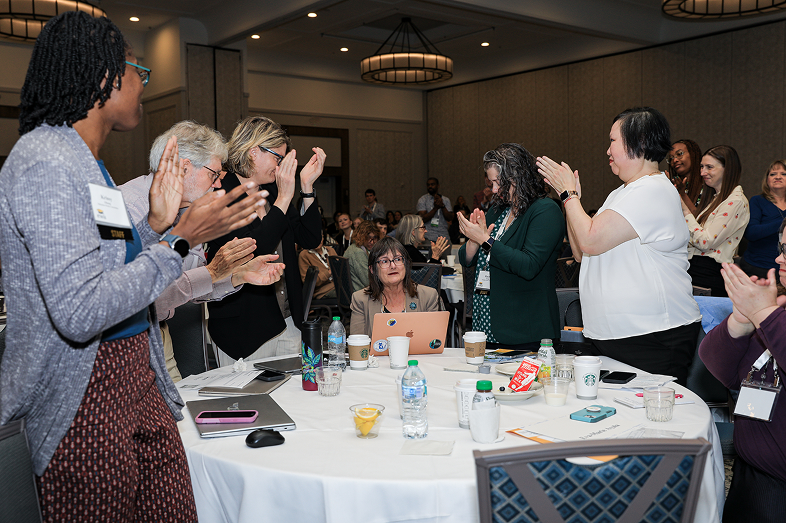
Giving Lori Crouch a Heartfelt ‘Thank You’ as She Retires
Photo credits: James Minichello, Lori Crouch, Rachel Wolin, others

Photo credits: James Minichello, Lori Crouch, Rachel Wolin, others
If you’ve attended National Seminar, participated in the EWA Awards, or taken advantage of just about any of the Education Writers Association’s training opportunities and online resources over the past three decades, chances are Assistant Director Lori Crouch played a pivotal role in making it happen.
For 28 years, Lori has done what she does best, and what she’s been passionate about since her own days as a beat reporter: improving the quality and quantity of education journalism. She has dedicated herself, personally and professionally, to EWA’s mission and its members.
At the end of November, Lori will begin her well-deserved retirement. While it’s difficult to fathom an EWA without her institutional knowledge, talent and – above all – caring heart, we know her ethos will continue in her stead. We will miss her immensely and can’t thank her enough for everything she has done for EWA, its members, and education journalism – and for her unwavering commitment to a free press.
Before she goes, she wanted to share some of her considerable wisdom about how to produce compelling and impactful stories and hold power to account:
Au revoir!
After 28 years, I’m retiring from EWA. It’s been a great journey, and I’ve loved (almost!) every minute of the time I spent with you.
EWA members: I’m in awe of your talent, your tenacity and your drive, especially in this tumultuous time for the news industry and the education beat.
It truly is the best beat in the world. You can write feature stories. You can uncover wrongdoing. You can follow the money and crunch data. You can cover politics – and the classroom.
After all these years, both covering education and then working for EWA, I have some parting tips for making the most of your reporting opportunities:
I hope to continue to follow your work in my new life of traveling and volunteering. Keep in touch!
Before she heads off on her next adventure, please feel free to reach out to Lori – whether it’s to share a favorite memory, say thank you or just wish her well! She can be reached at lcrouch@ewa.org.
Your post will be on the website shortly.
We will get back to you shortly